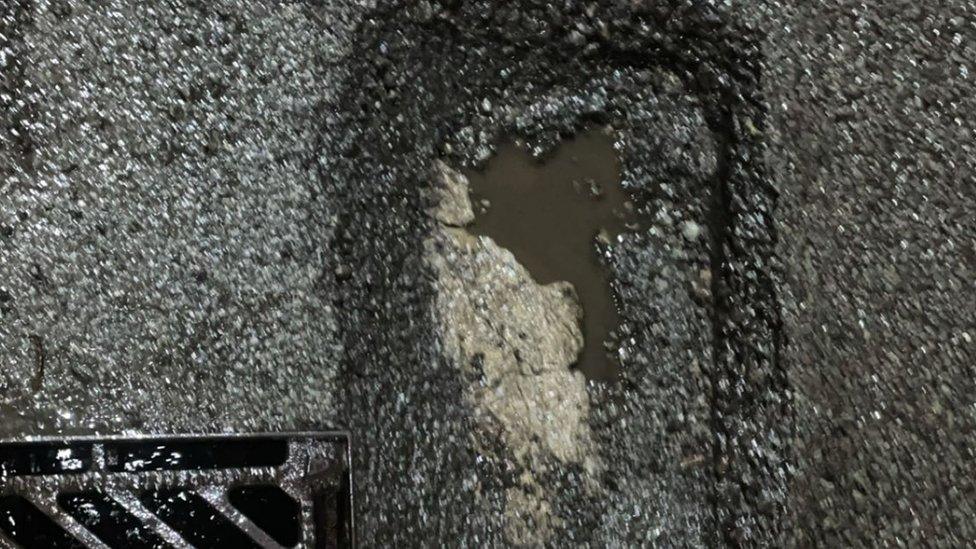Derbyshire's pothole problem: Your questions answered
- Published
- comments
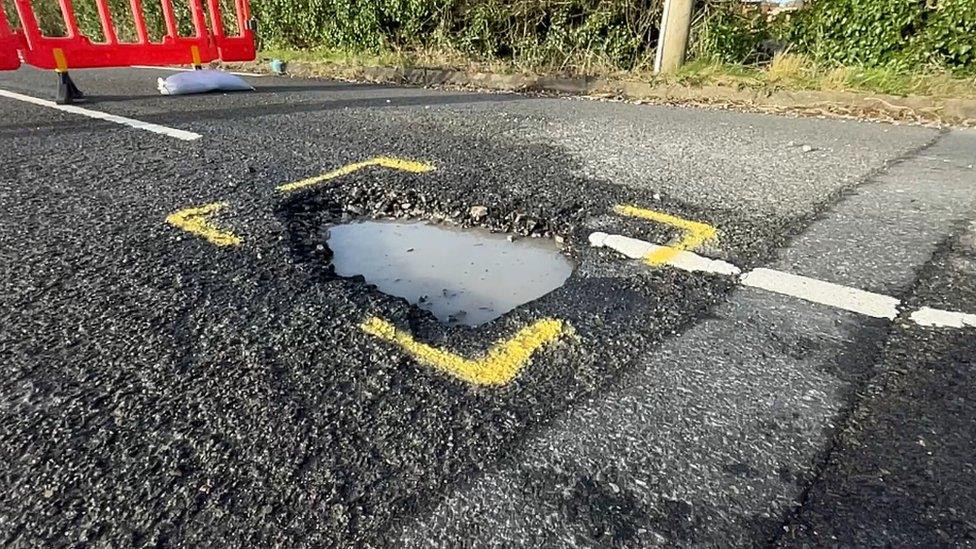
Derbyshire County Council said its teams were filling holes seven days a week
If you have driven or cycled anywhere in Derbyshire recently, chances are you will have encountered a pothole.
Last month the county council wrote an open letter to residents apologising for the "massive increase" and pledging to tackle the backlog.
This week the authority has been answering questions from BBC Radio Derby listeners about the ongoing problem.
Why are there so many potholes at the moment?
Derbyshire County Council said floods, snow, and rainfall recently had led to damage, but the problem was decades in the making with roads getting older.
The open letter, published in mid-January, was signed by the authority's director of highways Julian Gould and Charlotte Cupit, cabinet member for highways assets and transport.
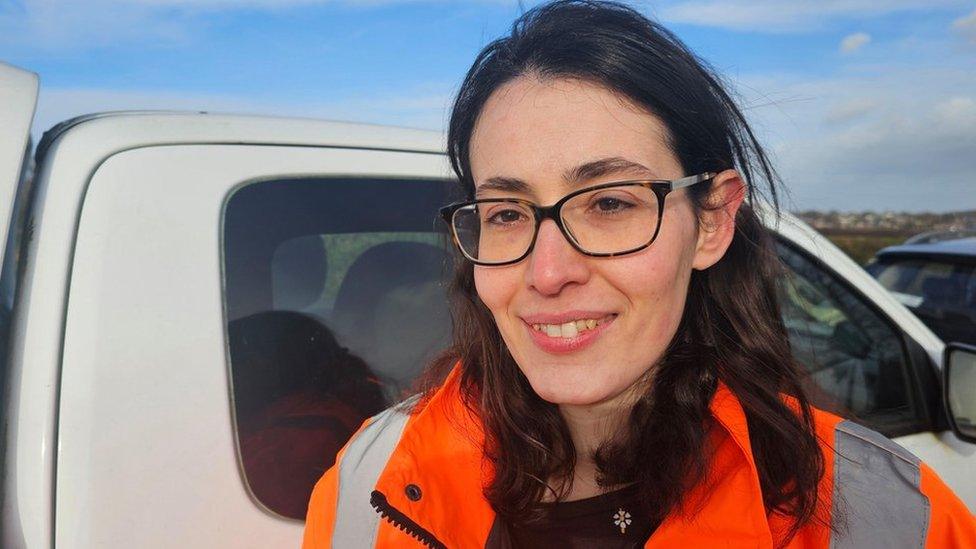
Councillor Charlotte Cupit said she "completely understands and shares frustrations with residents"
They wrote: "Whilst we always prepare for winter, the last few months really have thrown exceptional things at us.
"Many communities sadly are still dealing with the destruction of October and Babet's floods (with a month of rain in a single day), November's freeze and snow, and December's double the usual rainfall.
"You're right though when you say this recent damage isn't the only problem: this has been decades in the making with aging highways and reducing investment comparatively."
How many potholes are being filled?
The council said its teams were currently repairing about 1,500 potholes a week on the county's roads - with 90,000 filled in 2023.
It currently has 25 teams working across the county seven days a week - although it said some of these could be diverted if weather conditions worsen or roads need gritting.
The council said since April 2023 it had spent just over £4m on pothole repairs and it was "bumping up resources to deal with the current backlog".
However the authority said the large size of the county and the number of narrow roads were among the factors that can slow down their efforts.
Is the council struggling to keep up with the number of potholes being reported?
Ms Cupit said: "I think it's a challenging period at the moment, we're feeling it, the teams are feeling it and so are the residents.
"We are doing everything we can to keep up and keep on top of it."
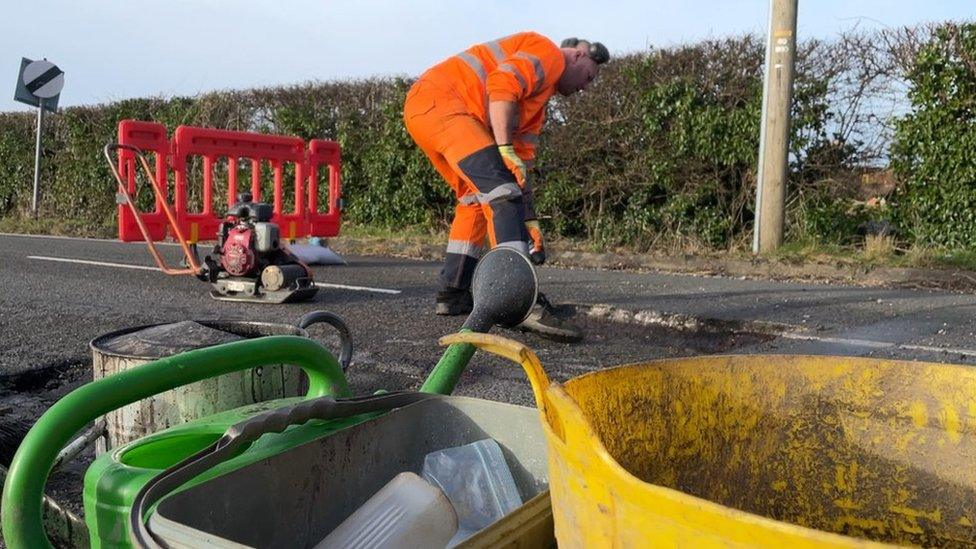
Millions of pounds are being spent on repairs
She continued: "We are hopefully going to bump it up even more but we are weather dependent.
"We are trying to get on top of it because we know that's what residents want and we want to fix it."
Why are fixed potholes going wrong again? Are you scrimping on materials?
Dave Ford is a project engineer at the county council.
He told the BBC: "We try to do them right first time, every time. There's instances where we can't because of traffic flows.
"We would aim to do a temporary repair and come back to it at some point in the very near future."
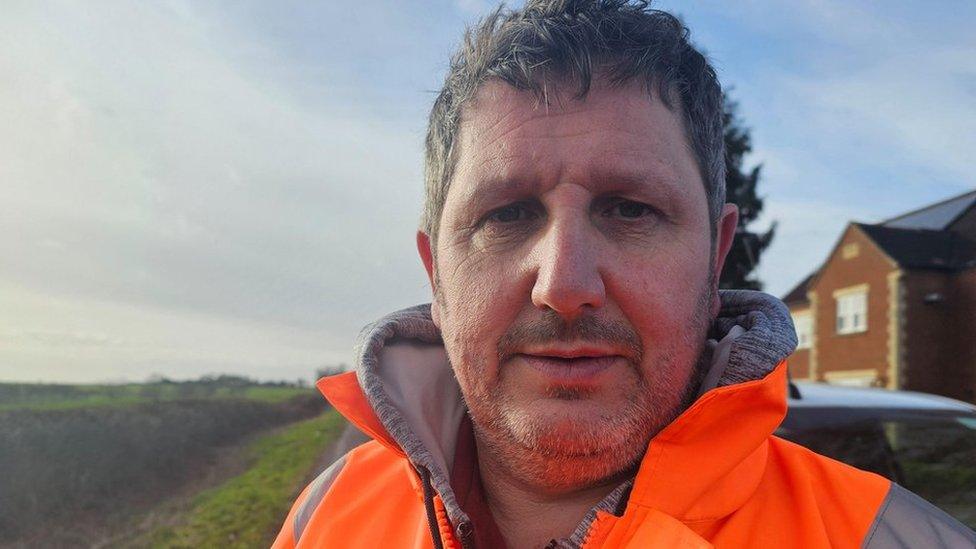
Dave Ford said recent flooding had made roads deteriorate faster
Ms Cupit added: "Sometimes we know certain potholes are on the capital programme. When we are about to do a bigger repair on a road it doesn't make sense to spend lots of money on a smaller repair when we know we're coming back."
On the subject of scrimping, Ms Cupit said: "We spend a lot of money on materials, we want to use the best materials.
"We want to use and utilise new technology. We've got our own laboratory in Derbyshire which is quite unique.
"What works on one road, might not work on another road in Derbyshire due to the variety in the county."
Mr Ford added: "We definitely don't scrimp on materials. We are looking at future products and looking at different ways of repairing potholes so hopefully we can tackle more potholes at a cheaper rate."
When you are filling in a pothole, why do you often ignore others in the same spot?
Mr Ford said: "The other potholes around it might not be actionable. We will come back and we will tackle them at some point but only when they get to an actionable state.
"If we do have chance, we will repair while we are there."
He added the decision on whether the pothole is actionable "depends on where on the road the pothole is and its potential impact on vehicles and other highway users".
"Our inspectors assess all these factors when logging repairs," he said.
The council said more information on the current pothole situation could be found in its open letter, external.

Follow BBC East Midlands on Facebook, external, on X, external, or on Instagram, external. Send your story ideas to eastmidsnews@bbc.co.uk, external.
Related topics
- Published17 January 2024
